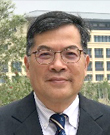 |
Todd Campbell
Professor of Science Education
Department of Curriculum and Instruction
Neag School of Education
University of Connecticut
Todd Campbell is a Professor of science education and faculty member in the Neag School of Education. He is currently Co-Editor in Chief for the Journal of Science Teacher Education, the flagship journal for the Association for Science Teacher Education, and Principal Investigator or Co-Principal Investigator on projects supported by the National Science Foundation and the U.S. Department of Agriculture. His research focuses on cultivating imaginative and equitable representations of STEM activity. This is accomplished in formal science learning environments through partnering with pre-service and in-service science teachers and leaders to collaboratively focus on supporting student use of modeling as an anchoring epistemic practice to reason about events that happen in the natural world. This work extends into informal learning environments through a focus on the iterative design of informal learning spaces and equity focused STEM identity research. Todd Campbell has published his research in venues ranging from the Review of Educational Research to the International Journal of Science Education in more than 70 peer reviewed manuscripts. He is a former middle school and high school science teacher.
Keynote address
Representing disciplinary activity in STEM education finds its importance when considered in the context of situated, sociocultural, and resource perspectives on learning. These theoretical perspectives of learning point to the central role of context, social negotiation, and fine-grained resources students draw on when reasoning. Given this, recent efforts to reform STEM education in the U.S. have focused on engaging students in representation of disciplinary activity in STEM education through positioning them to construct and critique explanations of events that happen in the world or solve problems of consequence. The problem space created by positioning students with aims similar to those pursued by disciplinary STEM professionals (e.g., scientists, engineers) provides students not only with a sense of the knowledge production practices of the disciplines (e.g., developing and using models, planning and carrying investigations), but also a sense of the explanatory power of disciplinary ideas and how and when they can be applied. Consequently, this keynote focuses on unpacking a theoretical basis for the representation of disciplinary activity in STEM education, while also providing examples of resources and tools useful for taking up these more innovative forms of teaching and learning in classrooms.
|
 |
Kwok-cheung Cheung
Director of Educational Testing and Assessment Research Centre
Professor of Curriculum and Instruction
Faculty of Education
University of Macau
Kwok-cheung Cheung is Professor of Curriculum and Instruction in the Faculty of Education at the University of Macau. He received his doctoral degree in Science Education from King’s College, the University of London. He is the Director of the Educational Testing and Assessment Research Centre in the University of Macau, and National Project Manager of the Macao-China PISA Study (with six cycles from PISA 2009 to PISA2021). His areas of specialization are: (1) educational evaluation of K-12 mathematics and science education; (2) assessment of 21st century skills; and (3) analysis of large-scale sampled survey data from an international comparative education perspective.
He is now serving as: (1) Consultative Expert for the Macao Government Non-tertiary Education Mid- to Long-term Ten-year 2021–2030 Planning Committee; (2) Core Consultative Committee Member of the 2017 Chinese National Science Assessment, Collaborative Innovation Center of Assessment toward Basic Education Quality, Beijing Normal University, China; (3) Consultative Expert for the Mainland China-PISA 2018, Basic Education Quality Monitoring Centre, Ministry of Education, China.
His publications are multifarious, including SSCI journal articles, books and monographs, and consultancy reports. (For details, see http://www.um.edu.mo/fed/staff/KCCheung/index.htm).
Keynote address
The past two decades — both locally and worldwide — have witnessed the promotion of STEAM (Science, Technology, Engineering, Arts and Mathematics) education in the K-12 formal school curriculum. The main aim of STEAM education across countries/economies is to educate qualified professionals to prepare them for lifelong careers related to the interdisciplinary STEAM fields. While there are different approaches to the practice of STEAM education in the mathematics, science and technology school curriculum, central to the classroom practices are the fostering of three 21st century skills considered vital for creative problem-solving in the information age, viz. collaboration, computational thinking, and creative thinking. This presentation is about how these three skills are to be assessed for the purposes of learning and development, based on the literacy assessment frameworks of the OECD’s PISA 2015 and PISA 2021 Studies, followed by elucidation of illustrative test units of STEAM activities. |